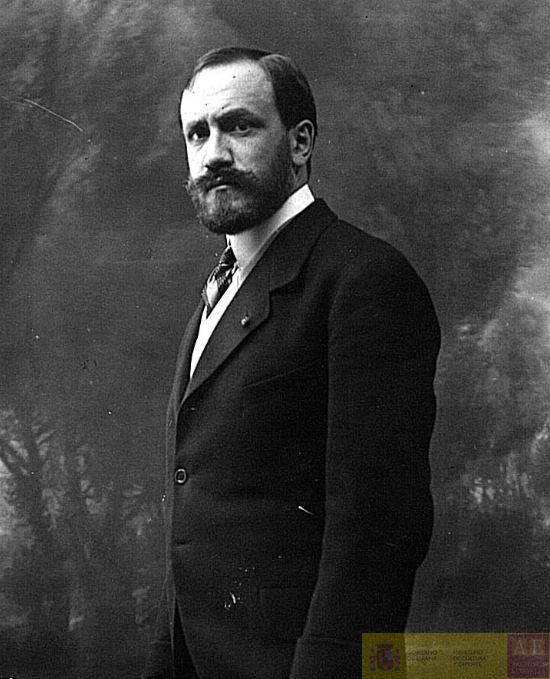 Persona - Lassalle, José (1876-1932)
Persona - Lassalle, José (1876-1932)
Identificación
Tipo:
Persona
Forma autorizada:
Lassalle, José (1876-1932)Otras formas
Fechas de existencia:
Madrid (España) 1876-07-01 - Madrid (España) 1932-09-10
Historia:
Director de orquesta, compositor y crítico musical español. Nació en Madrid, en julio de 1876, en la calle León. Era hijo de padre francés y madre española. Obtuvo el título de bachiller en el Instituto Cardenal Cisneros de Madrid y se doctoró en Filosofía y Letras por la Universidad Central de la capital.
Durante su estancia en Alemania, donde se formó como músico, recibió clases de Max Reger, Ermanno Wolf-Ferrari y Ludwig Thuille, así como los consejos de Gustav Mahler. Fue nombrado director de la Tonkünstler de Múnich, sucediendo a Felix Weingartner, orquesta compuesta por setenta y cinco profesores con la que realizó una gira en 1910 por España, Portugal y Francia. En su repertorio, además de César Franck, Paul Dukas y Richard Strauss, dio a conocer la música sinfónica de Reger, Mahler y Anton Bruckner. Asentado en París en 1912, dirigió formaciones sinfónicas como la Orchestre Lamoureux.
Durante la I Guerra Mundial fue reclutado por el ejército francés. Fue muy reconocido como director en ciudades europeas como París, Lisboa, Bruselas, Kiev, Riga y Helsinki. Maestro en el repertorio internacional, dirigió en San Petersburgo "Cléopâtre" (1914), ópera póstuma de Jules Massenet. En el Teatro Real de Madrid participó en la temporada de 1915, en la que presentó "Salomé" de Strauss protagonizada por su esposa la cantante rusa Maria Kuznetsova [Kousnezoff]. En 1916 ambos realizaron una gira por Estados Unidos. En ciudades como Nueva York y Chicago, además de óperas como "Manon", "Thaïs", "Cléopâtre" de Massenet, "Aida", "Traviata" de Giuseppe Verdi, "Faust" de Charles Gounod, "Carmen" de Georges Bizet y "Tosca" de Giacomo Puccini, presentaron un programa de música española con el título "La maja española", donde Kuznetsova cantaba y bailaba piezas de Isaac Albéniz, Enrique Granados, José Serrano y Joaquín Valverde, instrumentadas por Lassalle, con vestuario de Néstor de la Torre.
Volvió a España después de la Guerra Europea y dirigió la Filarmónica de Valencia, la orquesta del Teatro Real y la Sinfónica de Madrid. En Barcelona fundó La Filarmónica y más tarde, en Madrid, la Orquesta del Palacio de la Música, popularmente conocida como Orquesta Lassalle. Mantuvo correspondencia con Manuel de Falla desde 1925 hasta 1930. Programó un concierto en homenaje a Falla, con obras del compositor, que tuvo lugar en el Palacio de la Música de Madrid, el 5 de noviembre de 1927. La Real Academia de Bellas Artes de San Fernando propuso, en 1924, su ingreso en la Orden civil de Alfonso XII. En 1931 fue nombrado Oficial de la Corona de Italia. Falleció el 10 de octubre de 1932 en Madrid.
Fecha del evento: 1914 - 1918
Ocupaciones
Profesión (Es realizada por):
Profesión (Es realizada por):
Lugares
Lugar de Nacimiento:
Lugar de Defunción:
Conceptos/Objetos/Acontecimientos
Relaciones
Relaciones asociativas :
Relaciones familiares :
Enlaces Externos
Fichero de Autoridades:
Catálogo de Autoridades:
Documentos
Productor de:
- No hay Unidades de Descripción asociadas.






